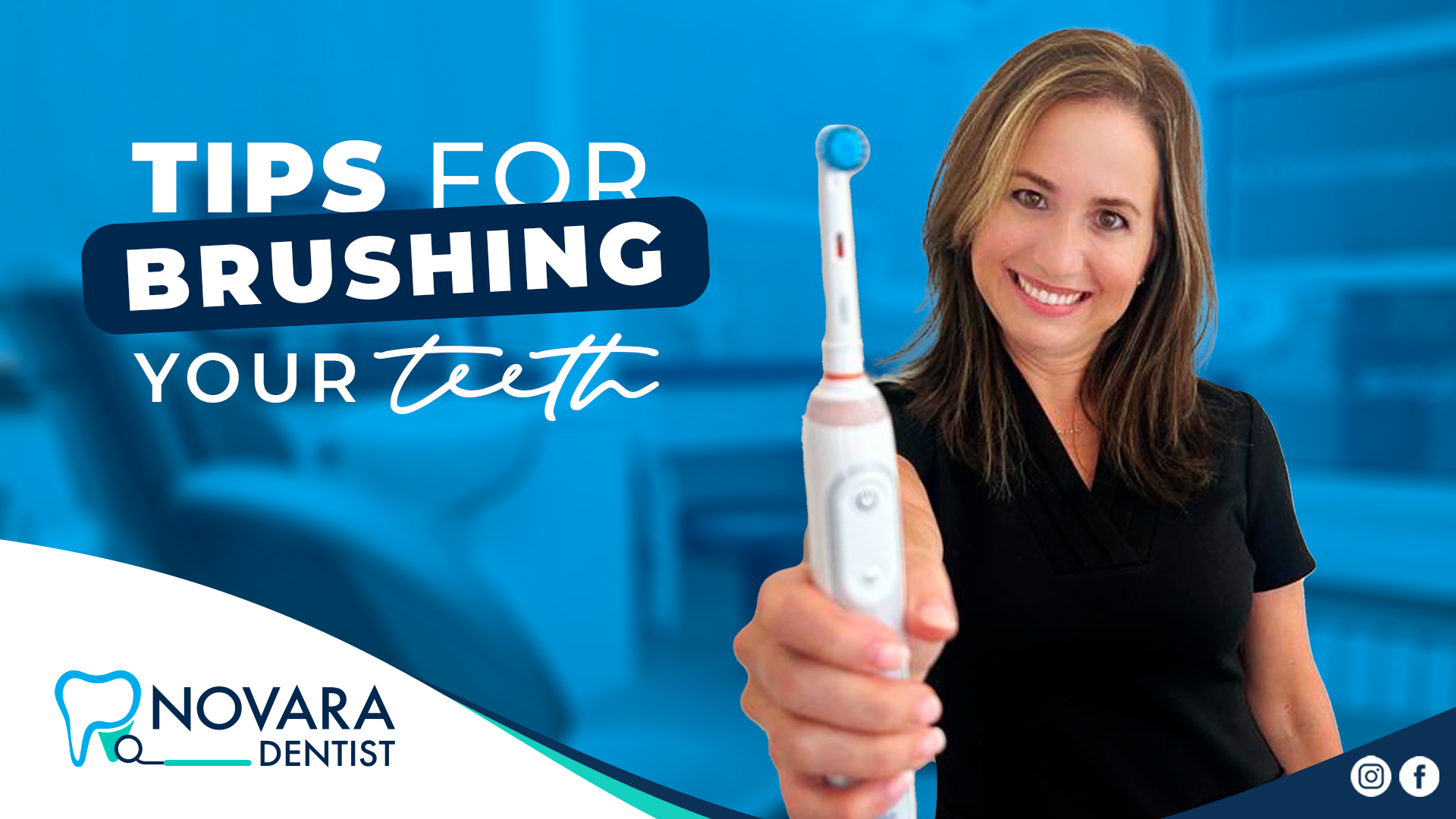Brushing your teeth is something you probably learned to do as a young child, and because of this, it is unlikely you
have stopped to evaluate how you brush your teeth. By now, the techniques you use are very much second nature. Unfortunately, many people are not brushing their teeth as well as they should be.
Since oral health is directly related to overall health, taking care of your teeth is extremely important. To improve your experience and results, try incorporating these eight tips into your oral hygiene routine.
Tips for Brushing Your Teeth
1) Use the right toothbrush
Picking a toothbrush should be a ‘Goldilocks moment’. You don’t want a handle that is too long or too short; you don’t want a head that is too big or too small; and you don’t want bristles that are too hard or too soft. You want a toothbrush that is “just right”.
If you need assistance in determining what toothbrush is right for you, talk to your dentist.
2) Keep your toothbrush clean
Setting your toothbrush on your bathroom counter or on the edge of your sink between uses is a great way to pick up bacteria. Instead, store your toothbrush upright using a toothbrush holder or a cup.
In addition to rinsing your toothbrush thoroughly after each use, you can also soak your toothbrush in a mixture of hydrogen peroxide and water or an anti-bacterial mouthwash. Some people even clean their toothbrush once or twice a month in the dishwasher.
3) Replace your toothbrush regularly
Over time, bacteria grows on your toothbrush, not only in the bristles but on the handle. Bristles also become damaged which makes them less effective.
For best results, replace your toothbrush every three to four months.
4) Be gentle with your toothbrush
Vigorous brushing can be harsh on your teeth and gums, so be gentle.
5) Don’t start brushing in the same place
When you brush your teeth, try to start in a different area of your mouth each time. The area you brush first tends to get more attention that the area you end with, so choosing your starting point at random can help ensure that all of your teeth get equal attention.
6) Don’t forget to brush inner sides, chewing surfaces and molars
Many people focus on the front of teeth and give minimal attention to the inner sides, chewing surfaces and molars. Even though these parts of your teeth may not be visible, it is essential to give them just as much attention as you give your front teeth, if not more, when brushing.
7) Floss before or after brushing
The bristles of a toothbrush cannot reach between your teeth where food, bacteria and tartar are often found. It does not matter if you floss before or after you brush your teeth so long as you are flossing on a daily basis.
After flossing, use water or mouthwash to rinse away anything that the floss dislodged.
8) Don’t brush your teeth immediately after eating
As tempting as it may be to brush your teeth immediately after eating, many dentists recommend waiting at least thirty minutes before you brush your teeth after eating or drinking.
Remember, it is never to late to improve your oral hygiene routine.
